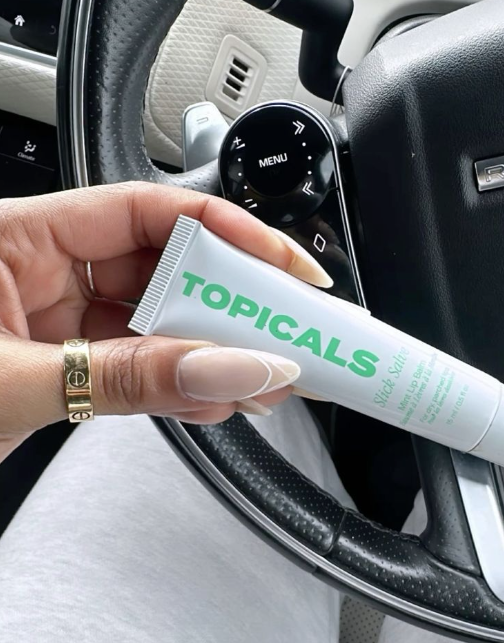Two weekends ago, I attended the Makeup Show. This is always one of my favorite events because that's when I stock up on my holy grail beauty item. Once I scratch that off my list, I take time to fully enjoy the entire experience.
This year, one booth in particular, had my full attention. Their marketing banners boasted about an all natural skin product loaded with minerals that would nourish the skin instead of polluting it with chemicals. I stood at the front of the booth and listened intently as the co-owner passionately detailed the benefits of their dead sea mud based products. At one point during the presentation, she pulled out their "mask in a tube" and applied a little on her hand. One of the people gathered around the booth asked "is that a clay mask?" "No, it's a mud mask!" Although she didn't expand any further, I made a mental note to research the difference because the level of conviction in her voice convinced me that knowing the difference was important.
As suspected, mud masks and clay masks are NOT the same. Have I been using the wrong type of mask the entire time?
Until now, I've only exposed my skin to clay masks. I thought they were the end all. They work pretty well. But after learning about the additional benefits of mud masks, I've started to question all of my choices in life.
I know I sound a bit dramatic but you guys know that I'm serious about skincare. I'm a sucker for products that really deliver maximum results. And, based on what I read, mud masks are superior to ordinary clay masks. Don't get me wrong, clay masks are still pretty decent. Everyone has a jar of Aztec clay in their product stash. Not to mention mega clay masks like GlamGlow. But, in the very end, they just don't live up to the potential of the all mighty mud mask.
While clay masks are great, they serve one main purpose. For the most part, clay masks are primarily made for oily skin. They do a great job of sucking up all the oil from our pores. But one drawback is that they sometimes can be over drying and strip the skin.
Their counterpart, the mud mask, is a bit more hydrating and gentle on the skin. The first thing I noticed after trying a mud mask was that it's water based. This made for easy application on the skin. Once dried, the mask didn't feel tight and start to crack like a clay mask tends to do.
But the real reason why I ventured into the world of mud masks were the potential benefits. Beyond being a hydrating purifier, dead sea mud masks boasts of being a mineral rich skin treatment. Because of the dead sea's low altitude, it's closest to all the earth's minerals. Some of these minerals are exclusive to the dead sea. Those wonderful minerals are absorbed directly into our skin to provide benefits that go beyond oil absorption.
There's still a time and place for clay masks. Especially if you have acne prone skin. But I love the way my skin responds to mud masks. And the benefits are more than skin deep. Since it's not as drying as clay, I'm thinking about increasing the frequency of my face masking during the week knowing that each mud treatment is hydrating and nourishing my skin.
Subscribe to:
Post Comments (Atom)








Post a Comment